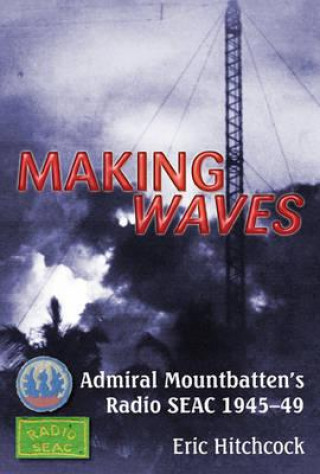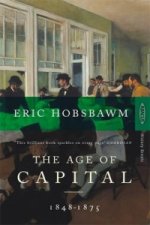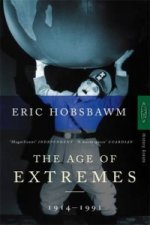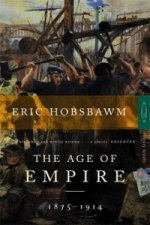
Kod: 04322857
Making Waves
Autor Eric Hitchcock
The story of British Forces Broadcasting began officially on 1st January 1944 in North Africa. Mobile stations were used in the advance northwards through Italy, and followed closely behind the troops after D-Day as they fought th ... więcej
- Język:
 Angielski
Angielski - Oprawa: Miękka
- Liczba stron: 224
Wydawca: Helion & Company Limited, 2011
- Więcej informacji o książce

115.65 zł
Zwykle: 150.64 zł
Oszczędzasz 34.99 zł
Dostępność:
50 % szansa Otrzymaliśmy informację, że książka może być ponownie dostępna. Na podstawie państwa zamówienia, postaramy się książkę sprowadzić w terminie do 6 tygodni. Gwarancja pełnego zwrotu pieniędzy, jeśli książka nie zostanie zabezpieczona.
Otrzymaliśmy informację, że książka może być ponownie dostępna. Na podstawie państwa zamówienia, postaramy się książkę sprowadzić w terminie do 6 tygodni. Gwarancja pełnego zwrotu pieniędzy, jeśli książka nie zostanie zabezpieczona.Przeszukamy cały świat
Zobacz książki o podobnej tematyce
-

Matthew and His Dog Named Blue
77.16 zł -

Getting into Teacher Training
348.96 zł -9 % -

Macmillan Readers Macbeth Upper Intermediate Reader Without CD
50.90 zł -

3 Commando Brigade in the Falklands: No Picnic
74.45 zł -23 % -

Hippo and the Unicorn
55.01 zł -4 % -

Macrophages
495.09 zł -

Ellie And The Hedgehog
99.71 zł
Podaruj tę książkę jeszcze dziś
- Zamów książkę i wybierz "Wyślij jako prezent".
- Natychmiast wyślemy Ci bon podarunkowy, który możesz przekazać adresatowi prezentu.
- Książka zostanie wysłana do adresata, a Ty o nic nie musisz się martwić.
Powiadomienie o dostępności
Wpisz swój adres e-mail, aby otrzymać od nas powiadomienie,
gdy książka będzie dostępna. Proste, prawda?
Więcej informacji o Making Waves
Za ten zakup dostaniesz 68 punkty
 Opis
Opis
The story of British Forces Broadcasting began officially on 1st January 1944 in North Africa. Mobile stations were used in the advance northwards through Italy, and followed closely behind the troops after D-Day as they fought their way across Europe into Germany. However, this approach was not suitable for the war east of Suez. The India and South-East Asia Commands (SEAC) covered such a huge area that other means were needed to deliver programmes to the forces in that theatre. A start had been made in Delhi in 1944, where a station had been set up which used air time provided by All-India Radio on one of its transmitters. Efforts to improve welfare facilities were made by Vice-Admiral Mountbatten, soon after he arrived to take up his appointment as Supreme Allied Commander, South East Asia. He set up a forces newspaper, and started experimental radio transmissions, but found there were financial constraints on what could be achieved. Friends and relatives back home became unhappy about the forces' living conditions, and articles appeared in the English press. These came to Churchill's notice, and he was persuaded to send Lord Munster on a fact-finding tour to establish what improvements were needed. His report was made available to M.P.'s just before Christmas 1944, when Churchill addressed the Commons on the situation. Lord Munster had noted the station in Delhi, but wrote that transmitters were needed for forces broadcasting, and that many more receiving sets were required. Discussions involving the War Office and the BBC reached the conclusion that the best option was a powerful short wave transmitter, supported by another with less power. This was approved by the War Cabinet, along with most of Munster's recommendations. What was much more difficult to resolve was the disagreement between those who wished to have the station in Delhi, and Mountbatten who wanted it under his command, in Ceylon. The text of a signal is included in which he set out his reasons. The furious argument was decided in his favour, and the result was Radio SEAC. Early estimates of targets for when the station might go on the air proved to be optimistic. They underestimated the difficulty of shipping, from England to Ceylon, the components of a big transmitter, complete with its own power supply. Several aerial towers (300 feet high) had to be dismantled, shipped and re-erected. In order to provide some broadcasting as soon as possible, the small transmitter was used for about a year before the powerful one went on the air in May 1946 - long after the war was over. Even readers with some knowledge of the technical details of radio receivers may be surprised by photographs showing the sheer size of the components used in the big transmitter. One could justify the huge expense of the transmitting station on the grounds that when it was not longer needed for forces broadcasting it could serve as a relay station for the BBC. This would mean, for example, that the BBC Overseas Service would be received well in Australia. It was used in this way for a short time, but independence for Ceylon led to the station being handed over to the country's new government. The story of Radio SEAC, and Mountbatten's pivotal involvement in it, has remained untold until now. Eric Hitchcock presents a balanced and fascinating account, blending military, social, political and scientific history together to produce an important account.
 Szczegóły książki
Szczegóły książki
Kategoria Książki po angielsku Humanities History History: earliest times to present day
115.65 zł
- Pełny tytuł: Making Waves
- Autor: Eric Hitchcock
- Język:
 Angielski
Angielski - Oprawa: Miękka
- Liczba stron: 224
- EAN: 9781906033958
- ISBN: 1906033951
- ID: 04322857
- Wydawca: Helion & Company Limited
- Wymiary: 234 × 156 mm
- Data wydania: 15. March 2011
Ulubione w innej kategorii
-

Learn to Read Ancient Sumerian
151.33 zł -

Russian Journal
60.82 zł -23 % -

King's Two Bodies
124.87 zł -4 % -

Heart of Europe
88.29 zł -23 % -

Armies of Castile and Aragon 1370-1516
67.24 zł -15 % -

One Hell of a Gamble
132.88 zł -5 % -

Rise and Fall of Ancient Egypt
79.07 zł -23 % -

Guns, Germs, and Steel
48.30 zł -5 % -

The Origins of Totalitarianism
37.57 zł -26 % -

Illustrated Encyclopedia of Uniforms of World War I
92.70 zł -23 % -

The Art of Combat
143.11 zł -

On Tyranny
37.57 zł -26 % -

Homo Ludens
54.01 zł -

Tuesdays With Morrie
48.70 zł -14 % -

History of the Decline and Fall of the Roman Empire
60.82 zł -23 % -

King Leopold's Ghost
51.60 zł -23 % -

Meditations
45.29 zł -4 % -

Streams of Gold, Rivers of Blood
151.33 zł -

Travels of Ibn Battutah
51.60 zł -23 % -

Augustus
70.04 zł -23 % -

Age Of Capital
70.04 zł -23 % -

Egyptian Book of the Dead: The Book of Going Forth by Day : The Complete Papyrus of Ani Featuring Integrated Text and Full-Color Images (History ... M
124.67 zł -23 % -

Deng Xiaoping and the Transformation of China
124.97 zł -5 % -

Age Of Extremes
78.56 zł -14 % -

John Skylitzes: A Synopsis of Byzantine History, 811-1057
168.76 zł -4 % -

Arms and Armour of Late Medieval Europe
47.09 zł -23 % -

Alexander the Great
85.18 zł -5 % -

End of Days
41.28 zł -5 % -

Shake Hands With The Devil
60.93 zł -15 % -

Complete Roman Army
92.70 zł -23 % -

Distant Mirror
60.82 zł -23 % -

Fall of the Roman Empire
93.10 zł -5 % -

Fifties
93.20 zł -5 % -

After the Ice
79.07 zł -23 % -

Histories
24.44 zł -23 % -

Savage Continent
70.04 zł -23 % -

Oxford IB Diploma Programme: The Cold War: Superpower Tensions and Rivalries Course Companion
223.39 zł -

Age Of Empire
70.04 zł -23 % -

Pompeii
51.60 zł -23 % -

Life in a Cave
26.95 zł -15 % -

Oxford Illustrated History of Prehistoric Europe
168.06 zł -9 % -

On the Ocean
183.90 zł -

Flowers of Battle The Complete Martial Works of Fiore dei Liberi Vol 1
596.21 zł -

On Ancient Warfare
115.65 zł -23 % -

Access to History for the IB Diploma: Causes and effects of 20th-century wars Second Edition
132.88 zł -15 % -

Safe Area Gorazde
88.29 zł -23 % -

Yoga Body
85.18 zł -5 % -

Fear and Loathing on the Campaign Trail '72
60.82 zł -23 % -

Fall of Carthage
70.04 zł -23 %
zadowolonych klientów
Od roku 2008 obsłużyliśmy wielu miłośników książek, ale dla nas każdy był tym wyjątkowym.
Copyright! ©2008-24 libristo.pl Wszelkie prawa zastrzeżonePrywatnieCookies


 21 milionów książek
21 milionów książek Dostawa 10.99 zł
Dostawa 10.99 zł (32) 444 93 66 (8-15.30h)
(32) 444 93 66 (8-15.30h)